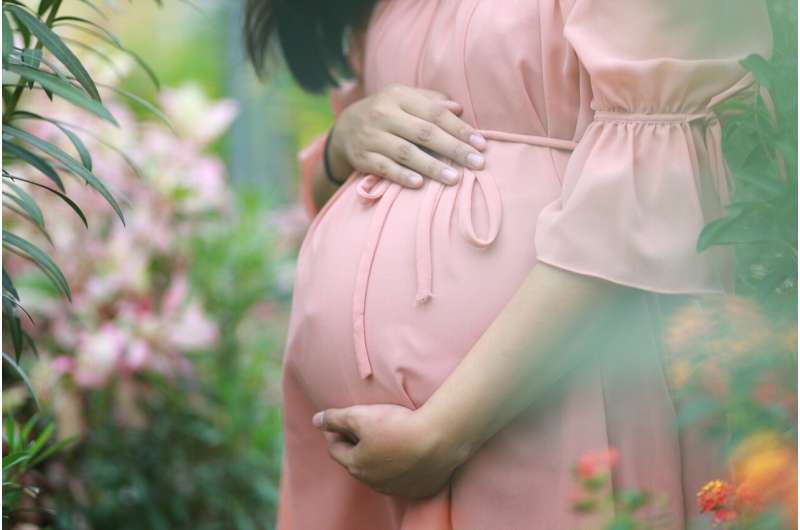This article has been reviewed according to Science X's editorial process and policies. Editors have highlighted the following attributes while ensuring the content's credibility:
fact-checked
trusted source
proofread
Rural Midwest women face unique challenges and are at risk for poor pregnancy and overall health outcomes, says study

A study from Regenstrief Institute and Indiana University Richard M. Fairbanks School of Public Health researchers is one of the first to provide insight into health and behaviors of reproductive-age women in the rural Midwest before and between pregnancies. This population is at risk for poor health and pregnancy outcomes but, typically, is underrepresented in national, statewide and other public health studies.
The study revealed both poor preconception and poor interconception health status among rural women. An estimated 18 million women of reproductive age live in rural areas of the U.S.
Approximately 98 percent of the 315 rural women surveyed by the researchers reported at least one high-priority risk factor related to smoking, hypertension, diabetes, alcohol use, folic acid intake, weight, physical activity or contraceptive use.
These women, who resided in northwest Ohio, fared worse than those in the state overall in smoking, folic acid intake, weight and hypertension, making the rural women more vulnerable to poor pregnancy outcomes and at higher risk for worse overall health outcomes such as diabetes, obesity and cancer.
Although the survey responses suggested that most study participants did not meet the threshold for heavy alcohol use, nearly one-third reported recent episodes of binge drinking.
"Our findings highlight some of the disparities between rural women and other women in Ohio, which may reflect a bias toward the urban populations," said Regenstrief and Fairbanks School researcher Brian Dixon, Ph.D., MPA, senior author of the study. "So that means that if we are thinking about how to reduce rates of cancer and how to address the health of these women and exposure of their children to secondhand smoke, we need to put more resources into smoking cessation programs at the rural level."
The study was conducted in Hardin County, a rural county of 470 square miles with a total population of 31,480 and a shortage of healthcare professionals. Kenton, the largest city in the county, has a population of fewer than 8,000.
Survey responses were collected from women at multiple locations across the county. Ages ranged from 18 to 45 and they were not pregnant. Approximately 96 percent were White, consistent with county demographics. Three quarters had one or more children. About 60 percent had private health insurance and nearly a quarter qualified for Medicaid. Approximately 11 percent had no health insurance.
"Statewide estimates are often used to track preconception and interconception health status for reproductive-age women; however, this may not portray the actual health status for women living in rural or underserved areas," said Natalie DiPietro Mager, PharmD, Ph.D., first author of the study, who teaches at Ohio Northern University. "The findings of this study show that we need better methods to collect and report data for women in these areas so that needed interventions can be identified."
The findings of this study can be used for monitoring, comparison, and benchmarking.
The authors note that the study "identified important health risks that should be prioritized and addressed through clinical and public health interventions that account for the unique challenges faced by rural women." They observe that their "findings underscore the importance of targeted funding for rural communities to improve residents' health and decrease health disparities."
"Preconception health status and associated disparities among rural, Midwestern women in the United States" is published in the journal Birth.
More information: Natalie A. DiPietro Mager et al, Preconception health status and associated disparities among rural, Midwestern women in the United States, Birth (2023). DOI: 10.1111/birt.12706


















